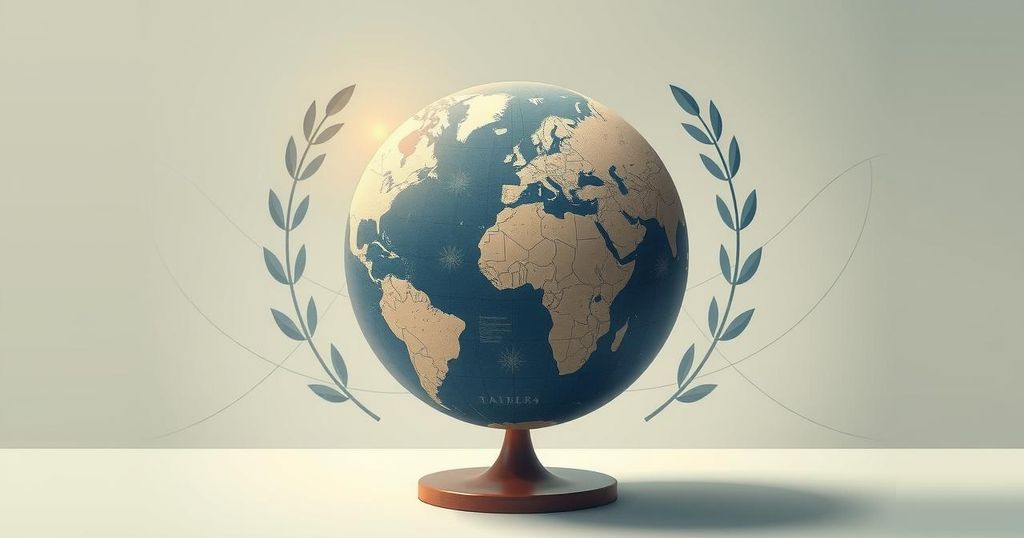Rubio to Skip G20 Amid U.S.-South Africa Land Tensions

Marco Rubio, U.S. Secretary of State, will not attend the G20 meetings in South Africa due to escalating tensions over a controversial land expropriation law. His decision reflects a broader skepticism toward multilateral institutions during the Trump administration, accompanied by criticisms about its potential impact on U.S. national security and relations with China. The land ownership debate, rooted in historical injustices, remains critical in South Africa’s political landscape.
United States Secretary of State Marco Rubio has announced that he will not attend the upcoming Group of 20 (G20) meetings in South Africa, following rising tensions between the United States and South Africa regarding a controversial land expropriation law. This announcement comes after President Donald Trump expressed intentions to potentially withdraw aid to South Africa due to the passage of legislation permitting land seizure without compensation under certain conditions.
Rubio criticized South Africa for its actions, claiming that the government is expropriating private property and misusing the G20 platform to promote agendas related to diversity, equity, and climate change. He stated, “My job is to advance America’s national interests, not waste taxpayer money or coddle anti-Americanism.” This reflects the administration’s stance against fostering relationships that undermine U.S. interests.
Critics have expressed disappointment at Rubio’s decision, viewing it as detrimental to national security and economic interests while potentially benefitting rival nations like China. Andrew Bates, a former White House official under President Biden, remarked, “If you’re not at the table, you’re on the menu.” This sentiment highlights the strategic risks associated with disengagement from international dialogues.
Ian Chong, an associate professor of international relations, noted that Rubio’s non-attendance aligns with the broader Republican skepticism toward multinational institutions during the Trump presidency. He pointed out the U.S. withdrawal from significant agreements like the Paris Climate Accords, suggesting a pattern of retreating from multilateral discussions that could foster cooperative solutions to global issues.
Tensions escalated after Trump accused South Africa’s President Cyril Ramaphosa of land confiscation and mistreatment of certain demographics. Ramaphosa countered these claims, arguing that the law facilitates a fair process for distributing land in the public interest, stating that it is not an instrument for confiscation but rather a legal measure to ensure equitable access to land.
The land ownership question is highly contentious in South Africa, rooted in historical injustices stemming from apartheid. While Black South Africans represent a significant majority, they hold only a small fraction—approximately 4%—of privately owned farmland, while white farmers retain about 75% of land ownership despite being a minor demographic. The government has yet to enact any land seizures under the new law, which critics assert could deter foreign investment.
In light of recent tensions, it is notable that Trump’s administration has instituted a freeze on foreign aid, which traditionally includes significant allocations to South Africa. In 2023, this aid was estimated at $440 million, underscoring the importance of U.S. financial support in addressing domestic challenges within South Africa and maintaining bilateral relations.
Marco Rubio, a significant figure in Trump’s administration as Secretary of State, has opted to skip the G20 meetings in South Africa, highlighting a growing rift between the U.S. and South Africa over land expropriation policies. The land reform issue in South Africa is rooted in historical injustices linked to apartheid, and the new law has stirred significant controversy internationally, especially from the U.S.
Rubio’s absence from the G20 signals a significant diplomatic stance amid rising tensions over South Africa’s land expropriation laws, highlighting the U.S. administration’s reluctance to engage with nations perceived as acting against U.S. interests. This decision has implications for international relations, especially considering the delicate balance of foreign aid and cooperation in addressing global challenges.
Original Source: www.aljazeera.com







